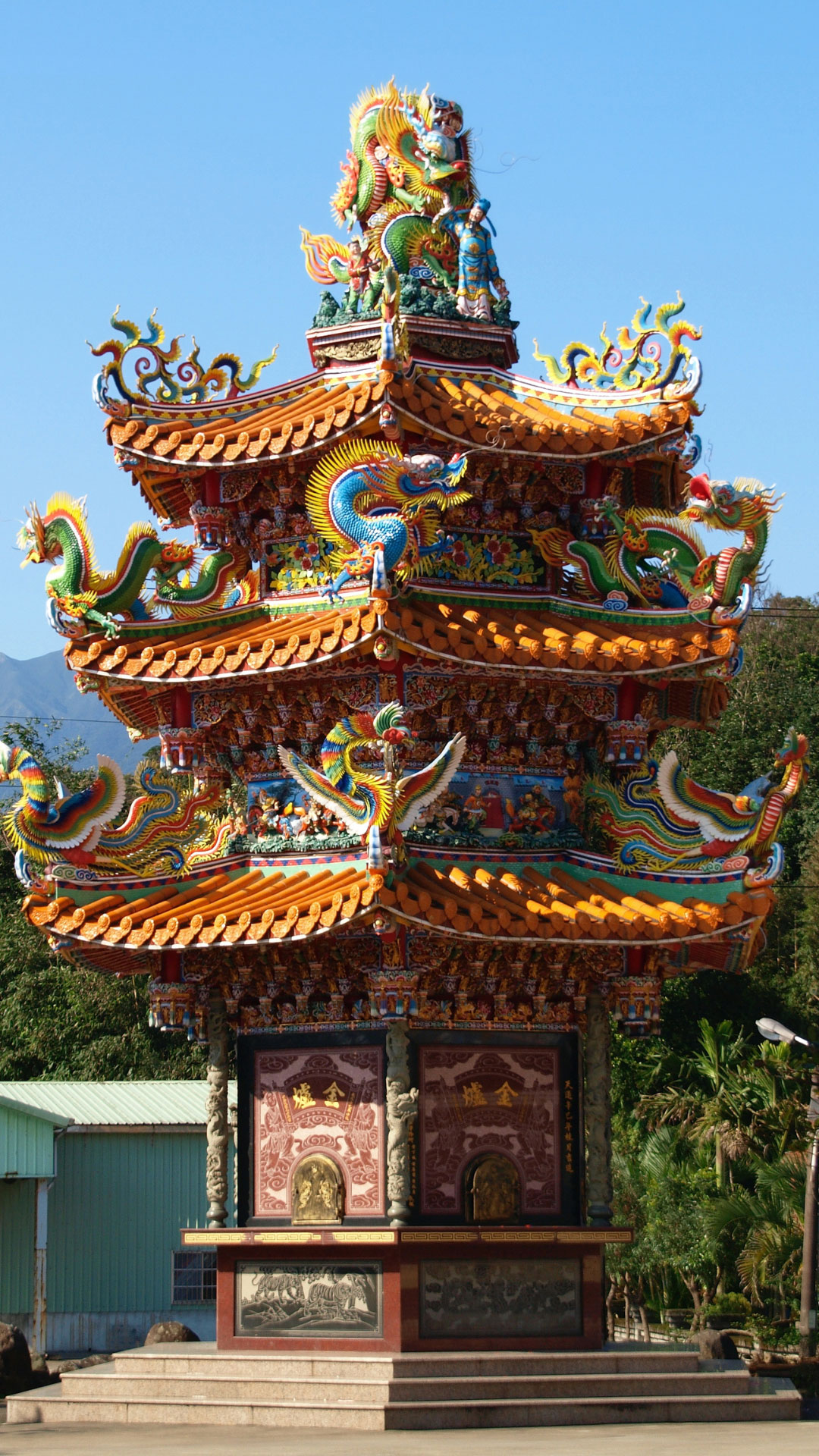Teach English in Taiwan
TEFL jobs in Taiwan
If you are looking to teach English in Asia, specifically to teach English in Taiwan, then you may want to have a look at what Taiwan has to offer, as there are many English teaching jobs in Taiwan, and it is an amazing place to live. The cost of living is low and the wages comparatively high making this a fantastic place to call home. It is also a great place to learn Chinese and immerse yourself in the traditional Chinese culture.
If you do head to Taiwan, there are lots of unique places to explore, and when you are an English teacher in Taiwan, you will have plenty of time off to do just that. Head to the National Palace Museum to see what is thought to be the most extensive collection of Chinese Imperial artefacts. Find out what happened when a local man took it upon himself to colour his village in the Rainbow Village, which is constantly changing as the artist Huang Yung-fu has not finished his painting yet. If you like spending time outdoors walking and hiking, then head to Yushan National Park. If that isn’t enough to keep you busy, Penghu, the island archipelago which, boasts stunning sandy beaches, street vendors and the best backdrop for a spot of rest and relaxation. There are simply so many incredible vistas that you will never run out of things to see and do when you are teaching English in Taiwan.
So in this guide is everything you need to know about the places to each, the types of English teaching jobs in Taiwan has to offer, the lifestyle, the cost of living and the average salary. Have a look to find out if a job teaching English in Taiwan could be the best move for you.
Types of Teaching Jobs
As with most places teaching English abroad, there are plenty of roles on offer; some will depend on your qualifications and experience, but it helps to know all the routes you can take to achieve your dream of teaching English in Taiwan.
Buxiban
A buxiban is a cram school, and this is the first stop for most new English teachers in Taiwan as a perfect first job. The pupils range from the very young school starters aged 4 to those closer to leaving at 15. The purpose of these after-school classes is to learn English. Buxibans tend to operate between 2 pm and 10 pm, and many are corporate-owned. They are always looking for new English teachers in Taiwan, so it makes sense to start there while you get the feel of living and working in the country. If you look into working for a smaller no-named buxiban, do your research to ensure it is reputable.
Public schools
To work in one of the public schools, you will need to have been a working English teacher in your own country and able to demonstrate your qualifications and experience before you can take a job teaching English in Taiwan. Public school jobs tend to be in secondary education, and there is often the freedom to plan the curriculum for yourself. At the end of a contract, whether for 6 or 12 months, you will also be given a pay bonus.
University
It is fairly universal that obtaining a job at the university level requires you to have a master’s degree or PhD. So, while these jobs are pretty prestigious and pay well, many people who teach English in Taiwan won’t be able to apply for them. If you do meet the criteria, you can enjoy working fewer hours while earning more money than in other English teaching roles.
Where to teach English in Taiwan
It is a good idea to visit Taiwan as a tourist before making plans. This gives you a chance to explore some of the major cities and see where you might like to make your base. There are a lot of differences between them, and they all offer a unique lifestyle so take the time to find your best fit before looking for a job.
Taipei
The capital of Taiwan is Taipei, and you will find a strong ex-pat community of English teachers in Taiwan living here. It is a vibrant and busy city that has plenty of history to explore. The night markets are amazing, and there are plenty of shopping areas too. You will get the chance to make friends with the locals while having support from other ex-pats.
Kaohsiung
If you love beaches, then check out the south, specifically Kaohsiung, which is a weather hot spot. There are lots of cram schools here, and there are fewer English speakers, so you will have to work harder to fit in, which for some people is one of the reasons they want to teach English in Taiwan.
Taichung
This is an off-the-beaten-track location cleverly placed in the second-largest city. It is famed for trekking and is perfect for setting up a home as an English teacher in Taiwan. It is almost dead centre of Taiwan, so also a great point from which to explore everything else the island has to offer.
How to get a job teaching English in Taiwan
If you are a qualified English teacher or have your TEFL 120-hour certificate, then you should find a job teaching English in Taiwan easy. Opportunities are posted on the Go Overseas job board, or you can find recruiters who have experience finding work for English teachers in Taiwan.
Where to find a job?
Debating the merits and drawbacks of recruiters is a constant issue, and you will read good and bad about using them. However, there are definitely advantages if you have any trouble locating a job teaching English in Taiwan easily alone. So, don’t write them off without speaking to them, as they could have the perfect placement for you.
When to apply for a job teaching English in Taiwan?
As is common, the school year starts around September, so schools will be looking for staff in June and July once they know how many vacancies they have, making this the best time to get your face known.
Work Visa
If you get a position teaching English in Taiwan with a school, you can expect them to sponsor your work visa and also help with the paperwork, which is invaluable. There are other requirements like a health screening, and then you must obtain an Alien Resident Card and a work permit before you are free to start work teaching English in Taiwan legally. Ensure your paperwork, including your degree and passport with at least six months remaining, are in order. Unusually you may not look for work while on a tourist visa, so you can go and scope the area but not apply for anything or make your intentions known until you have returned home.
Classroom culture
In buxibans, there is a robust and established curriculum which comes with the resources for you to get stuck straight in. They tend to focus on memorising and spelling and have less interest in comprehension and reading, which may seem unusual. They have a culture of quick results, even if this means a deeper understanding isn’t in place. So pupils simply memorise the words in a book rather than learning how to read them, which is a little ineffective, but you will have to adapt. There is a lot of pressure on children to perform, so you also need to try and work out how to teach in a way that doesn’t cause them extra stress.
In both public and private schools, it is common for an English teacher in Taiwan to be paired with a Taiwanese teacher who will be there to help bridge any language gaps and help with controlling the students.
Culture and etiquette tips
You will need to observe the culture when living as an English teacher in Taiwan. This means blending in to look like the locals in terms of dress. They are very friendly and will welcome you with open arms. Although they may have limited resources, they will offer to drive you somewhere or pay for a meal. It is part of their culture to look after people, whether they are friends, family or strangers. If you stick out and don’t observe the culture, you will find yourself something of a tourist attraction, and they will stare and point as this is not disrespectful to them.
The food is plentiful, and you are encouraged to eat like a local, which means vegan and vegetarian dishes as many are Buddhist or Taoist and therefore do not eat meat.







Living costs
Earnings for English teachers in Taiwan are good, and with a low cost of living, you will be able to save money. Of course, the salary varies depending on your experience and qualifications as well as the institution you work at. Newly qualified TEFL teachers in Taiwan will find that it is easy to live on the wages paid.
Your spending habits will determine how much you have left at the end of a month, but even so, there is scope to eat out and travel and still have money left over. If you eat like a local and avoid imported items, you will save even more.
- Inexpensive restaurant meal: USD $4.06
- Monthly pass (regular price): USD $43.31
- Utilities: USD $74.64
- Domestic beer (0.5 litres): USD $1.93
- Regular cappuccino: USD $2.72
- Water (0.33 litre): USD $0.71
- Regular milk (1 litre): USD $3.16
TEFL jobs in Taiwan: KEY POINTS
SALARY
USD $1,700–$2,220
EDUCATION
A bachelor’s degree (in any subject) is required.
MAIN JOB TYPES
Buxiban, public schools, University
TEFL CERTIFICATION NEEDED
120 Hour TEFL Training
KEY FACTS
- Popular locations: Popular locations for TEFL jobs include Taipei, Kaohsiung, Tainan, Taichung, and Anping.
- Salary: Salary will depend on the location and type of school but as a guide, the basic monthly salary for a full-time ESL teacher is likely to be in the region of NT$50,000–NT$65,000 (£1,335–£1,735/$1,700–$2,220) per month. In addition, freelance rates for one-to-one lessons are around NT$700 to NT$1,000 per hour (£19–£27/$24–$34).
- TEFL certificate required : A TEFL qualification isn’t a visa requirement to teach English in Taiwan. However, many schools will look for a 120-hour TEFL certificate as a minimum.
- Education requirements : A bachelor’s degree (in any subject) is required.
- Term times: September to July. Peak hiring times are January, February, and August.
- Currency: New Taiwan Dollars (NT$)
- Language: Mandarin is the most widely spoken of Taiwan’s four official languages, alongside Taiwanese, Hakka and the Formosan aboriginal languages.
- Teaching experience: Not essential to have previous teaching experience, but those with experience can earn more
Facts about Taiwan
LANGUAGE
Mandarin
POPULATION
23.5 million
TEFL JOB DEMAND
high
CURRENCY
New Taiwan Dollars (NT$)
CAPITAL
Taipei City
OUR TAIWAN TEFL RATING
4/5

TEFL jobs in Taiwan: FAQS
What do I need to teach English in Taiwan?
Depending on the role you are applying for, you may need a Bachelor’s degree; all applicants will need to have a clean criminal record. You should be a native English speaker and having a TEFL qualification is preferable.
Can you teach English in Taiwan without a degree?
Teaching English in Taiwan without a degree is possible, but this will be reflected in the amount you earn. You may find classroom assistant work or volunteer programmes are your best bet.
How much do English teachers make in Taiwan?
The amount you can earn varies depending on the type of institution and your qualifications, but generally, an English teacher in Taiwan can make USD $2000-$2400 a month. You will also find schools offer generous extras like housing, flight costs and severance pay.
Is English widely spoken in Taiwan?
You are advised to learn some basic Mandarin before you head to teach English in Taiwan. If your new role is in Taipei, you might find it possible to get by without speaking the local language. By 2030 the government is looking to create a bilingual nation with Mandarin and English as the official languages, but for now, English is less widely spoken.
TEFL courses
Become a confident, qualified English teacher with flexible online, classroom or mixed learning.

TEFL internship
With accommodation, training and full in-country support sorted – it’s the hassle-free way to kick-start your TEFL career.

TEFL jobs
Check out new TEFL job listings on our sister company’s well-stocked jobs board.

 United Kingdom (UK)
United Kingdom (UK) United States (US)
United States (US) Canada
Canada South Africa
South Africa India
India Australia
Australia New Zealand
New Zealand China
China Russia
Russia Germany
Germany France
France Spain
Spain Netherlands
Netherlands Vietnam
Vietnam United Arab Emirates
United Arab Emirates Italy
Italy Poland
Poland Thailand
Thailand Turkey
Turkey










